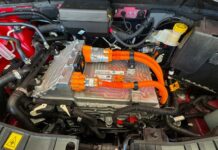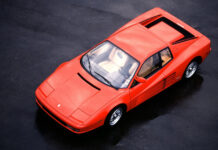The world seems to be changing somewhat in the view of electric cars and the use of alternative fuels. And why are we discussing it?
It is not because we consider it unusual that development and progress are often based on a reduction in assumptions. We don’t have to go far to give examples. Hydrogen as an alternative means of propulsion was to be used mainly in freight transport. The situation is now that this medium has not been discarded by several companies, whether it is used to generate electricity in fuel cells or as a fuel for hydrogen engines. At present, there are two camps – some advocate a kind of “absolutism” of electric cars, while the other party claims that unilateral orientation towards electric cars is not the right way to go.

Where’s It Heading?
Green NCAP has recently caused turmoil when comparing electric cars and vehicles with internal combustion engines. The results first showed that electric cars are not so advantageous in terms of complex life compared to classic cars. However, subsequent corrections to the comparison methodology (after comments from the professional community) confirmed that electromobility is a more economical step towards improving ecology. However, there is again the word “but”… A lot of work needs to be done in the field of electric car development in terms of battery weight, battery capacity, charging speed and infrastructure, lifetime, energy recovery, etc. Well, let’s see…

The Word ‘Hydrogen’ in the Game
Several car manufacturers have alternative hydrogen solutions available. Hyundai Nexo with fuel cells and hydrogen in the tank has even set a world record in range when with a consumption of 6.27 kg (0.706 kg hydrogen/100 km) it has covered 905 km! The Bavarian brand BMW also wanted to use hydrogen directly in the cylinders of the internal combustion engine. The Japanese car manufacturers (Toyota, Yamaha, Mazda, Subaru, and Kawasaki) are also exploring alternative green fuels, including hydrogen and synthetic biomass fuels. Toyota and Yamaha are working on the development of a 5.0 V8 hydrogen internal combustion engine (334 kW/455 hp; 540 Nm), with appropriate modifications, of course. Some companies and development laboratories have embarked on the development of synthetic fuels, including Porsche.

Will Synthetic Fuels Establish Themselves?
This synthetic fuel (eFuel) will be produced by Porsche in Chile. In electrolyzers, hydrogen is produced by the decomposition of water, and after a reaction with CO2 obtained from the atmosphere, synthetic methanol is formed. The final product is fuel for a classic internal combustion engine. The necessary amount of environmentally-friendly energy, i.e. from wind turbines, must be ensured in the production process. First, fuel is to be produced for Porsche racing cars, later also for ordinary purposes. Even with the projected 80% electrification of vehicles of this brand, it does not seem that the “classic” will be lost. Synthetic fuels have also received some criticism from the experts due to the need for electricity in their production and higher costs. We aren’t referees, the parties involved will finally come to the best possible solutions.

Text: Peter Stano, photo: Toyota, Hyundai, Porsche, BMW













